By Dr. Sein Myint
On February 17, 2009, Burma main democratic opposition party - the National League for Democracy (NLD) issued the Special statement -02/12/0, repeating its call for the dialogue between Senior General Than Shwe, the Chairperson of SPDC and Daw Aung San Suu Kyi., General Secetary of NLD. While many of facts in the statement were familiar old proposals except paragraph (4). In para.4 NLD publicly acknowledged that “confrontation, utter devastation, economic sanctions and total block’ are ‘not beneficial to the country and all people.’
Further more, it stated that “Daw Aung San Suu Kyi informed authorities through U Aung Kyi, Minister for Relation, that she was ready to cooperate and issue the joint communiqué to prevent these problems from happening’, a formal response and concession to SPDC's Statement No. 1/2007., that had stated the preconditions that NLD must accept before any dialogue between the two top leaders take place.
Incidentally, NLD statement coincided with the new US Secretary of State, Hillary Rodham Clinton’s statement in Jakarta, Indonesia, the next day, indicated a possible shift in the US policy on Burma public acknowledgment on the ‘failure of economic sanctions’ to pressure the repressive Burmese government to entre political dialogue with her democratic opposition, NLD.
And Mrs.Clinton' s statement in Indonesia provide the prelude to the appointment of Special Envoy on Burma , and there are no shortages of democrats experienced with international diplomacy that she can choose for this post. For an example, New Mexico Governor Bill Richardson had been to Burma before and was a top diplomat at the UN under President Clinton.
However, the Former Secretary of State Madeline Albright could not be very receptive in Nay Pyi Daw for her personnel admiration of Daw Aung San Suu Kyi. Nevertheless she could be a good counter part to SPDC’s Information Minister Kyaw Sann who’d enjoyed lecturing visiting UN diplomats on SPDC’s achievements and Burma political history. On the other hand, State Department’s top diplomat Christopher Hill could be a good choice with his extensive diplomatic skills and experience in Asia, especially in dealing with another authoritarian regime North Korean and the Chinese.
Since, NLD has departed publicly on sanction and confrontational polices, this could provide the basis and the best opportunity for the next US Special Envoy to propose and formulate new US policy on Burma after meeting with various key stakeholders to start of the political dialogue and process.
The change of NLD position on sanction have vindicated those un-popular arguments against western economic sanctions put forward by anti-sanction advocates, as one prominent member promptly stated that “whether one agrees or disagrees about the past imposition of sanctions and their effects is a separate policy matter from this issue of denying both the capacity to understand what is needed to improve the lives of the people and implicitly the moral responsibility that results from such astounding ignorance.”
While at the same time, he acknowledged that “successive Burmese military governments since 1962 have mishandled Burma’s national economy and created 47 years of economic hardships for the bulk of the population” but put the blame on the opposition leaderships for their “open support for economic sanctions against the country and continuation of holding the country's economy—and along with it public welfare—hostage does nothing to advance the cause of either freedom or development.”
Paradoxically on former case, both groups, anti-sanction as well as pro-sanction, shared the same view on successive military government handling of economy. However, pro-sanction advocates further more argued and stressed that even without economic sanctions during General Ne Win’s socialist government Burma was still relegated as one of poorest country in the world despite of its abundance natural resources and relatively educated populace.
Regardless of NLD policy changed on sanction, no one could predict any immediate and imminent lift of current economic sanctions on Burma by the US and other western nations. Public policy change would require approval and passage thru appropriate legislative bodies in their respective countries, e.g. the US congress, British parliament, EU parliament etc.
Without a doubt pro-sanction activists will put up strong challenges and lobby their respective legislatures to keep the sanctions until human rights and political reform have taken place inside the country, the same conditions that NLD has voiced and urged continuously supported by the US and western governments over the years.
Now as NLD has conceded to the conditions laid out in the SPDC Statement No. 1/2007, the ball is now in the count of SPDC, whether they would take a step forward by meeting one of the key conditions set out by the NLD, that is to release all political prisoners including Daw Aung San Suu Kyi before any dialogue could take place between the two sides.
It is imperative that the stakeholders to take this important first step forward encouraged and supported by the UN and International community to take further steps in the political dialogue process leading to genuine national reconciliations in Burma.
Dr. Sein Myint serves as the director of Policy Development of Justice for Human Rights in Burma, located in Maryland, USA . He is an Honorary Member of Amnesty International Chapter 22 in Washington D.C.
Rest of your post
Thursday, 26 February 2009
Subscribe to:
Post Comments
(
Atom
)





















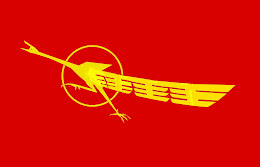





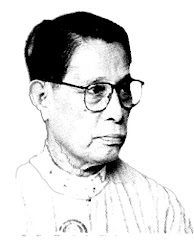


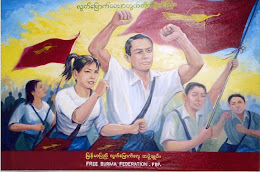





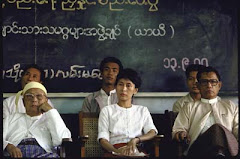

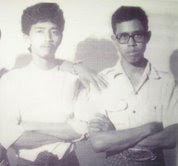

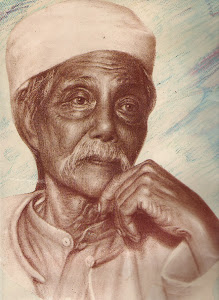
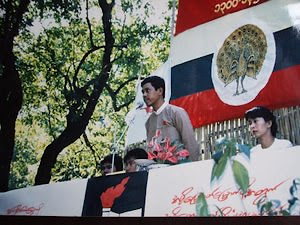
No comments :
Post a Comment